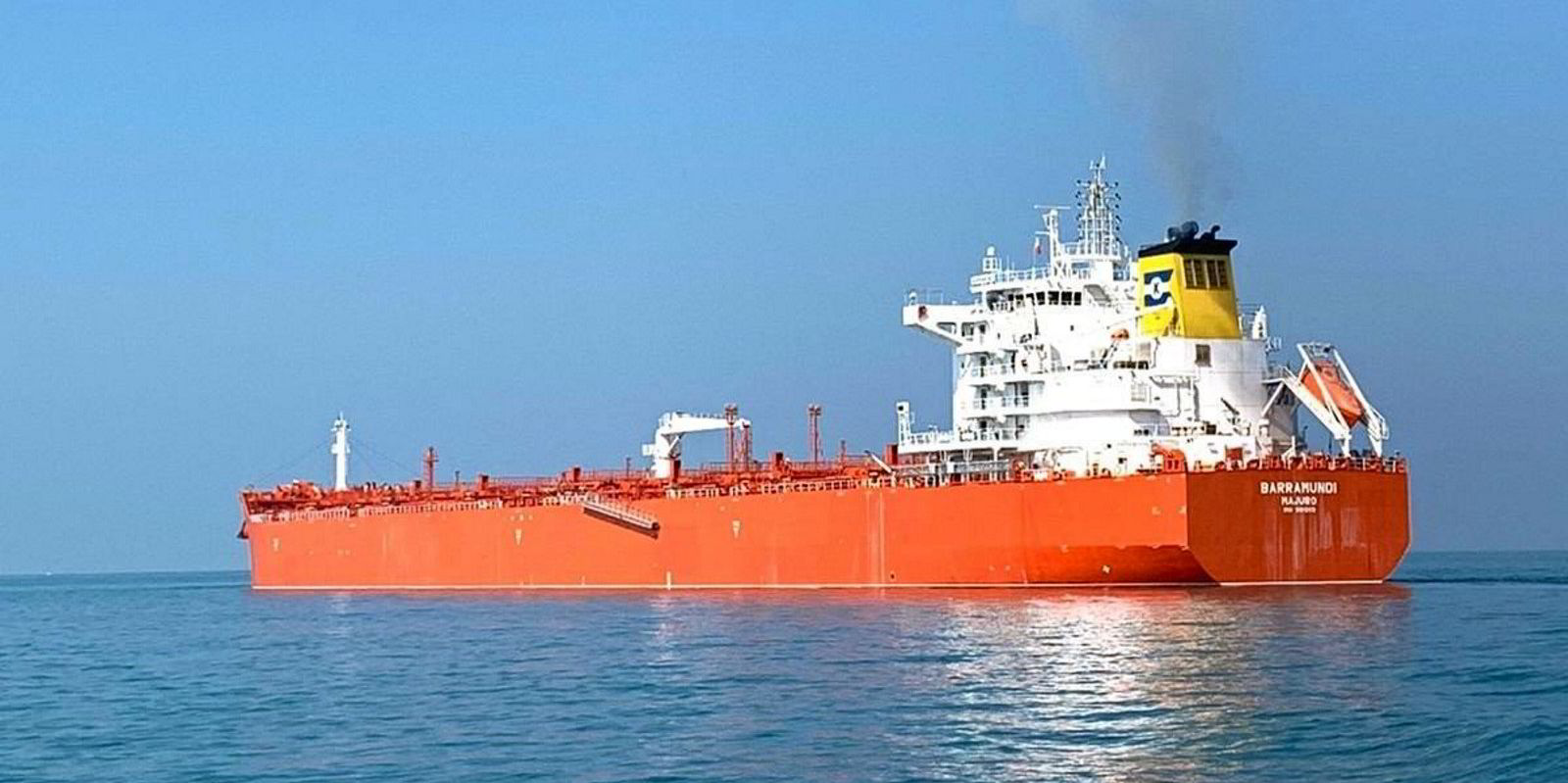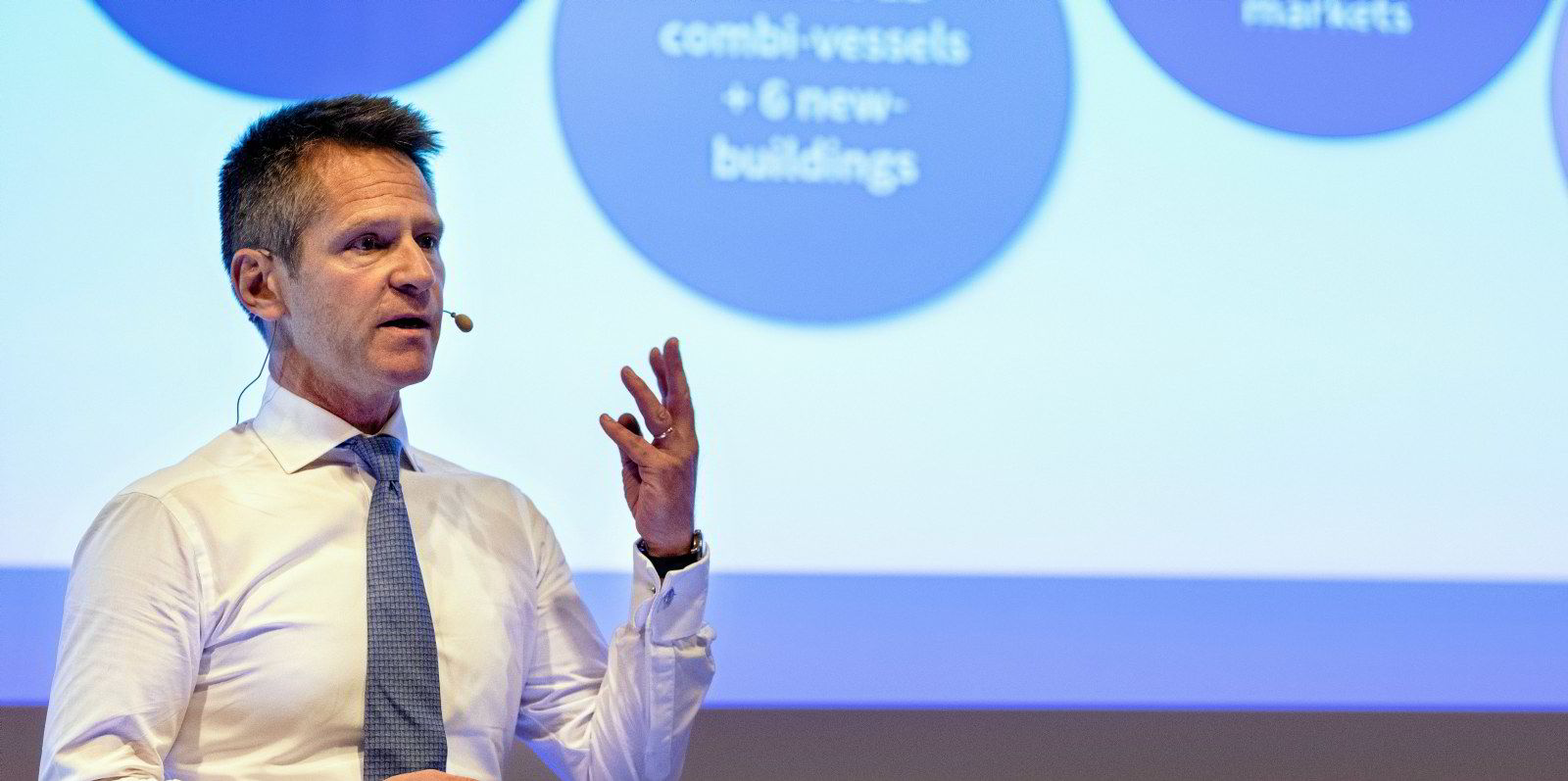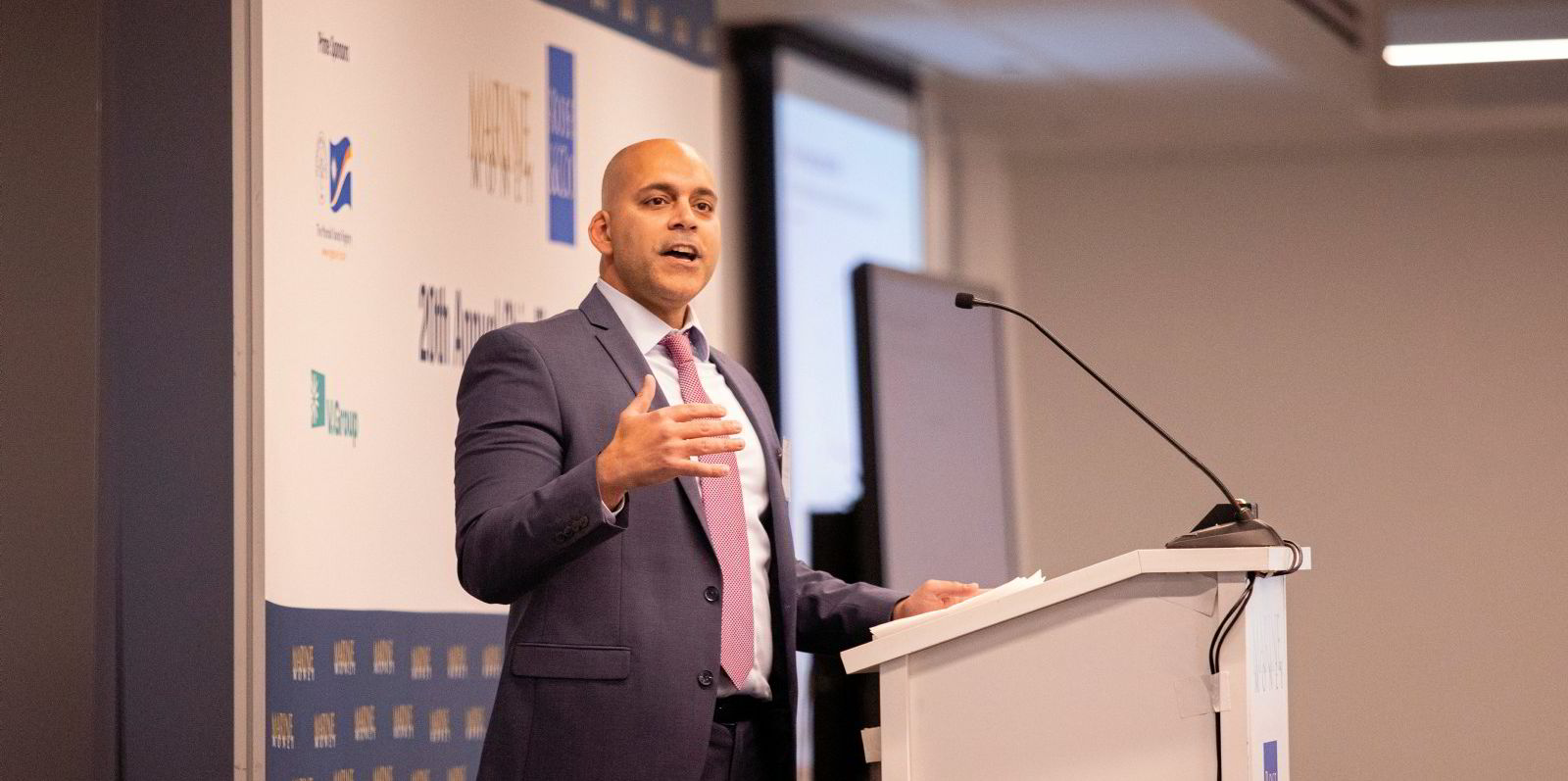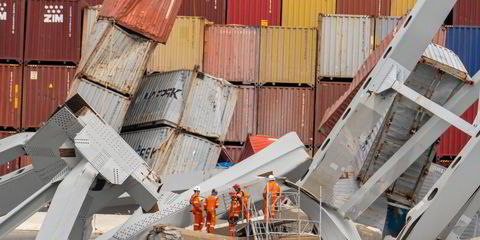DNB Markets believes Klaveness Combination Carriers' innovative ships are set to save the company significant amounts if shipowners are forced to pay a carbon levy.
The combination vessels can reduce ballast legs by carrying both wet and dry cargoes.
Jorgen Lian, an analyst at the Norwegian investment bank, has initiated coverage of the Oslo-listed shipowner's stock with a "buy" rating.
He said the KCC fleet will enjoy higher utilisation and lower fuel consumption and emissions.
"Given the increased pressure to decarbonise shipping as a part of end-users' value chains, KCC provides a highly attractive solution," Lian wrote in a note to clients.
DNB Markets calculates that the carriers cut emissions by between 35% and 40% compared to traditional vessels.
This, in turn, should generate potential savings in the region of $4,000 to $5,000 per day should a carbon levy of $100 pet tonne be implemented, the investment bank said.
Superior returns
Since the second quarter of 2018, the caustic soda and dry cargo Cabu ships have earned rates 1.8 times higher than benchmark panamax bulker levels and 1.7 times that of MR tankers' time charter equivalent (TCE) rates.
KCC has now completed its newbuilding programme and has 17 ships ready to go.
"A strong operating track record and growing acceptance of its newest design should in our view ensure growing profitability, and we expect dividends to rise substantially by 2023," Lian said.
"The fuel-efficient business model is set to get increasing attention as shipping drives for decarbonisation."
Share growth to continue

DNB Markets' target price is NOK 65 ($7.53) per share, against NOK 55.50 in Oslo on 28 September, up nearly 12% on the day.
Lian believes "significant dividends" could be on the cards from 2023, when he estimates a yield of 14%.
DNB Markets is estimating Cabu TCE rates at $22,000 per day in 2022, if 84% of voyages are combination trades.
This rises to $26,800 per day in 2023 at 85% of combination trades.
Rates for the dry cargo/oil product Cleanbu vessels are assessed at $18,700 per day in 2022 if 81% of trades are in combination, and $24,400 for 2023 at 85%.
Lian said Ebitda for 2021 should come in at $59m, 1% above consensus, rising to $66m in 2022 and $99m in 2023.
Engebret Dahm optimistic
KCC chief executive Engebret Dahm said in August that his company will be able to beat its rivals by benefitting from improvements in both the bulker and tanker markets next year.
He told a second-quarter webcast that there is a "strong possibility" the two sectors will enjoy "strong" earnings at the same time in 2022, for the first time since the China boom of the 2000s.
Dahm said: "No company can get the same out of this market situation as KCC."
The outfit is fresh from announcing its biggest contract of affreightment (COA) for its Cleanbu vessels with an unnamed major charterer.
Dahm said the one-year deal, with two years of options, will tie up one to one-and-a-half vessels.






